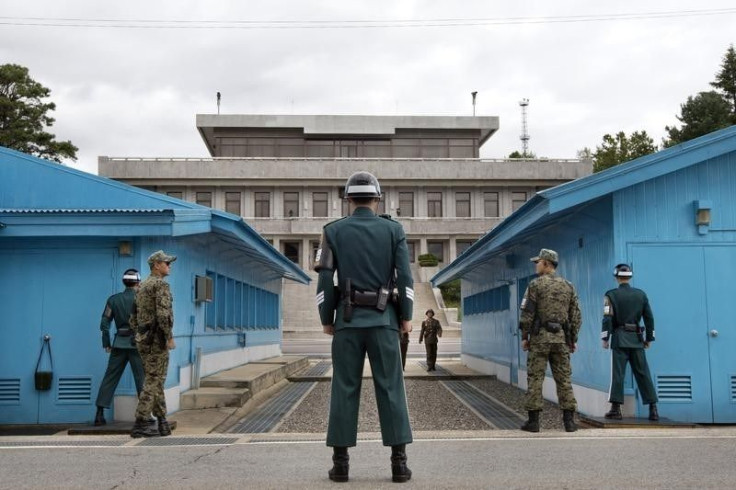North Korea Defections Drop Under Kim Jong Un, But More Women Are Defecting Than Men

The number of defectors crossing the border from North Korea to South Korea has fallen. A new report shows that while defections are down overall, the proportion of women fleeing the reclusive country is up.
Women between the age of 30 and 39 are members of the most likely demographic group to leave the confines of the North Korea, according to South Korea’s Ministry of Unification. The number of defectors has dipped significantly since 2011, when Kim Jong Un took the nation’s helm after the sudden death of his father and predecessor Kim Jong Il. Experts say the reasons for this drop could include marginally improved living conditions and tighter border controls, which were mandated by Kim Jong Un.
“North Korea is now significantly less poor than it used to be,” Andrei Lankov, a Russian scholar and noted North Korea expert, told the Guardian. “Although malnutrition is still common, death from starvation is no longer a daily threat for even the poorest citizens.”
The data also reflect a change in opinion about South Korea as a destination to begin life anew. It has been widely reported that many North Koreans find it difficult to assimilate to life in South Korea after defection, with many struggling to find jobs.
“Many defectors experienced hardship in living and getting proper jobs in South Korea. Many defect to the U.S. or U.K, as well, though they are not as well economically supported,” Seo Yu-seok, a researcher at the Institute of North Korean Studies at the University of Detroit Mercy, told the Washington-based NK News. “So the merits of coming to Korea, risking their lives and futures is decreasing every day among North Koreans.”
During the past 15 years, the proportion of women defecting has almost doubled, Ministry of Unification data shows. In 2001, women represented 46 percent of the defectors going to South Korea; this year, the comparable figure was 83 percent. The rise in the proportion of women defecting has a lot to do with the attention given to men in North Korea, where they occupy most of the government positions. This kind of gender bias makes it easier for women to flee, going unnoticed for longer.
“For women, they remain as a housewife, meaning that they won’t be bound to as many restrictions as men ... This would lead them more freedom to go to markets and make profits, which would lead to a more opened chance to step out for freedom,” Seo said.
© Copyright IBTimes 2024. All rights reserved.






















